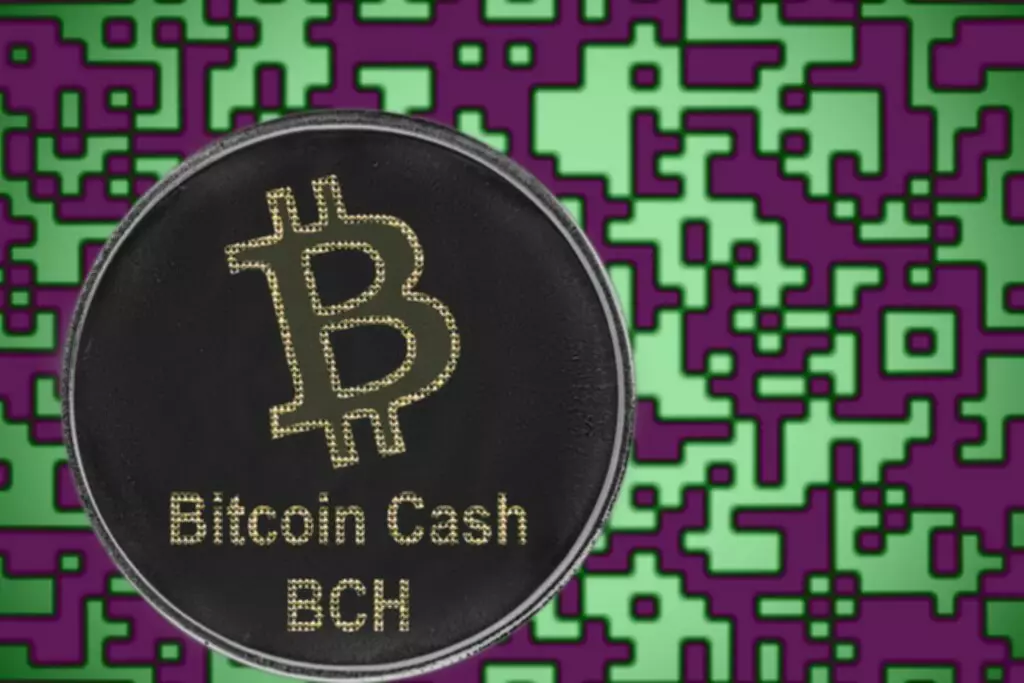Содержание
- Market Cap
- A Revolutionary Approach To Academic Validation Using Ethereum
- Pros And Cons Of Solana Vs Ethereum Vs Polygon
- Stay Informed On The Most Impactful Crypto News With With Analysis From Our Team
- Definition Of Repetitive By The Free Dictionary
- Ethereum Pros
- Reasons Why Solana Can Repeat Ethereum’s 2018 Fractal To 5,000% Gains
We are a private de-facto organization working individually and proliferating Blockchain technology globally. The blockchain rarely goes through any issue and https://xcritical.com/ is one of the most stable and efficient blockchain platforms available. It allows the users to create consolidated apps, which are decentralized applications.
The platform records all transactions in their current state and copies of the latest transactions are instantly made to reflect recent transactions. It is an effective network but it is slow compared to a stateless network. Solana’s native token is SOL, which like most other intelligent contract platforms, can be used to pay for all on-chain transactions and smart contracts. Moreover, SOL can be used by investors to do micropayments, and by supporting the network, SOL token holders can also earn rewards, which is called staking.
The hybrid consensus on the Solana blockchain enables better flexibility for arranging the order of transactions enabling around 50,000 transactions per second. Decentralized finance, or DeFi, has revolutionized business and unlocked new value across every industry sector. However, significant problems have emerged with blockchain technology, hindering the unlocking of the full potential of Web 3.
In the world of Blockchain, Solana has the tag of most scalable and first truly web-scale Blockchain, as it’s one of the few protocols achieving over 1,000 TPS. Smart Contracts is nothing but a program that consists of a collection of code and data that is stored at a specific address over the Ethereum Blockchain. Like a regular contract, Smart Contract can define rules and automatically enforce them through the code.
Market Cap
The next step would be to merge these two chains, which is expected to happen sometime in the next few months of 2021. Lastly, Ethereum will introduce the above mentioned “shard chains”, which will enable Ethereum to process more transactions. Blockchain consensus algorithms are designed to allow a blockchain network to agree on a shared state of the digital ledger in a decentralized fashion. Consensus algorithms are vital to blockchain security because a successful exploit of consensus (a 51% attack, etc.) has a significant impact on the ledger’s immutability and security. When considering the security of leading smart contract platforms, there is no single basis for comparison.

In fact, the platform is expected to be able to process up to 100,000 transactions per second, which is more than Solana can currently process. Proof of Stake allows transactions to be verified using staked cryptocurrency. The validators who stake their cryptocurrency will play a similar role as the miners in Proof of Work but will use significantly less energy. So far, our comparison of Solana and Ethereum has been limited to Ethereum 1.0, which is the current blockchain. But the platform has been in the process of a multi-phased upgrade Ethereum 2.0, also known as Eth2 or Serenity.
A Revolutionary Approach To Academic Validation Using Ethereum
Currently, the Solana network can process approximately 50,000 transactions per second . Using PoH allows the Solana network to create a historical record that proves an event has occurred at a specific moment in time. PoH uses a cryptographically secure function written so that output cannot be predicted from the input, and must be properly executed to generate the output. In September 2021, the Solana network had gone down three times, with the entire network down for nearly 17 hours at one point as the result of a hack. More recently, a Solana bridge to the Ethereum network was also hacked, and resulted in $320 million of stolen funds.
Ethereum is progressing to Ethereum 2.0, and once the upgrade is complete, it will process over 100,000 TPS. Both networks have had unpleasant incidents in the past, but overall, thanks to the still valid PoW consensus, Ethereum wins the decentralization race. Ethereum 2.0 was promised for years and is finally scheduled for September 2022. Solana uses a fraction of the energy resources needed to power the Ethereum virtual machine. Solana is highly scalable and offers one of the fastest and most efficient ecosystems, while the Ethereum Network is plagued with congestion. As a result, Solana’s monthly NFT transactions have surpassed Ethereum’s over the last few months.

Given the age of Ethereum, it has a much larger and more diverse DeFi ecosystem than Solana. However, Solana is trying hard to attract more developers to the network by launching a variety of marketing strategies such as hackathons and bug-bounty programs. Since its inception, these tactics have helped to increase the number of users and developers. Both Ethereum and Solana have their own native coins that are used for paying the transaction fees. These are some of the two most important coins in the entire crypto market.
We know that Ethereum is in the process of a major upgrade that will help it surpass Solana in terms of speed and scalability. And considering that’s the one downside Ethereum currently has, the platform will look even more appealing when the merge to Ethereum 2.0 is complete. One of the most appealing features of Ethereum is its decentralization. It’s a fairly straightforward process for anyone to become a validator and to create consolidation, decentralized applications. There’s no limit to what individuals can use the Ethereum platform to do, which encourages innovation.
Pros And Cons Of Solana Vs Ethereum Vs Polygon
Solana is a high-performance decentralized blockchain built with the goal to enable the scalability of user-friendly applications. Solana is thought to have one of the fastest-growing ecosystems in the world, with thousands of projects spanning DeFi, NFTs, Web3, and beyond. While Ethereum is limited by its ability to process a huge number of transactions per second, where it stands out is decentralization. The barrier to entry to become a validator — especially in Ethereum — is not too high, which makes for a trustless decentralized network. To compensate for the lack of scaling features at the native blockchain, layer-two solutions help provide for advanced scalability and throughput.
Neon helps developers deploy Ethereum dApps without any smart contract reconfiguration. The idea is to simply use Solana to work with Ethereum smart contracts to reduce transaction validation times and gas costs. To enable users to conduct fast and secure transactions and to access glitch-free solutions, it is vital for a blockchain to be able to scale. This spurs crypto entrepreneurs to build their projects for Solana instead of Ethereum. Growing fast enough to meet demand is one of the thorniest problems in crypto.
A few years ago, no one thought about how blockchain and cryptocurrency would change the world. Today, we are witnessing the emergence of new business models based on blockchain technology. Leading trends like NFTs and decentralized finance have become the most talked-about terms in modern times. As the demand for blockchain-based solutions continues to grow, the need for blockchain platforms to develop such solutions has also evolved extensively. One of the most talked about crypto tokens that have been making the best use of blockchain technology to provide Decentralized solutions to the crypto space since 2017. Often termed as the Ethereum Killer, SOL provides faster transactions than Ethereum and has been facilitating the creation of DApps in the crypto ecosystem.
- Looking at the price-to-sales ratio, Solana lands on a multiple of 30,909x earnings, while storage protocol Filecoin has a multiple of “only” 514x.
- Solana is the fastest-growing open-source programmable Blockchain protocol that developers and institutions worldwide use to build decentralized applications and marketplaces.
- In addition, thanks to PoH, it’s not possible to manipulate the time and perform the well-known MEV attack.
- During the first three weeks of that month, Solana’s price jumped from around $30 to $75 in value.
- The protocol helps transfer digital assets between ERC-20 and SPL blockchains.
Over the years, he’s written editorial and marketing pieces for many of the world’s leading financial newsletters and publications. His main investing interests are technology, blockchain and cryptocurrency. Solana and Ethereum are both looking to have major impacts in the crypto world and beyond. Because Ethereum was created years before Solana, it is a larger platform that is better suited to provide a variety of use cases, such as NFTs, DeFi and digital identity. While Solana may be able to catch up, Ethereum currently has the fastest growing network in terms of both applications and developers.
Solana is a high-performance powerhouse built to outcompete the Visa payments network and create a new paradigm for the world of finance. However, Solana does have issues that are dealbreakers for many people. This consensus mechanism requires a series of computational steps to determine the passage of time between two events. According to Solana, this mechanism allows transactions to be verified more quickly and is a part of why the platform can process so many transactions per second. When it comes to Solana and Polygon, they are way ahead in terms of transaction speeds and offer 50,000-65,000 transactions per second which are a lot faster.
Stay Informed On The Most Impactful Crypto News With With Analysis From Our Team
Ethereum constantly searches for solutions to achieve faster transaction speeds and enhanced scalability and has introduced several Layer 2 protocols to help with the issues. Ethereum is a blockchain-based software platform with the native coin, ether. Ethereum smart contracts support a variety of distributed apps across the crypto ecosystem. $186,101,941,070.28, Ethereum is said to be one of the most diverse blockchain protocols.

Ethereum is a decentralized blockchain network that establishes a peer-to-peer network which executes and verifies smart contracts securely. If you want to transact on the most secure blockchain, use Ethereum. The Ethereum blockchain is the more mature network and has been around since 2014, meaning it has had time to be optimized. Solana was created in 2020 and is still trying to figure it all out, but, it offers users a more affordable option. A crucial feature that makes Solana stand apart from its competitors is that the blockchain is scalable at its base level, that is, it does not require layer-two solutions to increase scale. A key component of the blockchain that aids in this scalability is the Turbine block propagation protocol.
Definition Of Repetitive By The Free Dictionary
Virtually anyone can create a smart contract and upload it onto the network. However, the 2 networks have different ways of verifying interactions with smart contracts and transactions on the chain. Uniswap is an Ethereum-based What Is Solana decentralized finance protocol for exchanging crypto. It is open-source and automated, eliminates intermediaries in the cryptocurrency trading process, and makes it easy to trade and list ERC-20 tokens.
NFT Monthly Sales Top $947M as Solana Gains Ground on Ethereum – Decrypt
NFT Monthly Sales Top $947M as Solana Gains Ground on Ethereum.
Posted: Mon, 03 Oct 2022 21:50:17 GMT [source]
The list of Ethereum-based DeFi projects and applications goes on and on. Other successful platforms include Compound, Etherisc, MetaMask, Curve, SushiSwap, Sovrin, etc. A new investor registers on the platform, verifies their identity and eligibility, explores offerings and opportunities, and funds their account. The company also provides its users with KYC/AML and capital management services. By accurately reporting the results of events, token holders receive a portion of the fees paid to the platform.
It has a market capitalization of over $198 billion and a total circulating supply of over 121 million tokens. They use unique coding languages to create conditionals that automate tasks on the blockchain. A conditional is typically an “if” statement that automatically does something when a certain event occurs. Solana and Ethereum are more likely to continue to develop in parallel and coexist. Perhaps over time, Solana will surpass Ethereum not only in speed and cost but also in safety and security. However, the development team behind Solana still has a lot of work to do before they can establish a rock-solid reputation similar to Ethereum.
Ethereum attempts to have an impact in different areas from security to sustainability. Because Ethereum has a much larger network, it bolsters the computing power to support larger projects. One example of this is within the government; some countries have tested using Ethereum’s blockchain to verify ownership of land deeds and other government-issued documents. Basically, Wormhole is useful when you have assets on Ethereum, and the logic is implemented on Solana. You can transfer tokens from one blockchain to another, but you still have to write smart contracts.
Ethereum Pros
According to the latest information available on Solana’s website, it is currently hosting around 340 apps. While Ethereum hasn’t appreciated as much, the price has increased around five-fold in the last 12 months. As of writing this, Ethereum boasts a +$400 billion market cap, putting it, together with Bitcoin, in a league of its own. At the end of the day, both Ethereum and Solana have their security pros and cons. Neither platform is inherently easier to use, and, at the end of the day, many of the security challenges, such as a lack of familiarity with a language or virtual machine, can be overcome. Gives one of the most significant tools for participating in and driving a new borderless society and economy.
ETH has too much momentum, especially when it comes to DeFi Applications. In this article, I will be comparing the world’s second-largest cryptocurrency, Ethereum (ETH-USD), to one of its “competitors”, Solana (SOL-USD). In Proof of Work, the emergence of mining pools created a situation where a few colluding groups could have controlled the blockchain. In Proof of Stake, the parties with the greatest stake also earn the greatest rewards, and this “rich get richer” design can centralize power over time. Many Ethereum smart contract vulnerabilities are created by the details of how Solidity and the EVM work and developer inexperience with them.
What Is Ethereum?
Top 10 coins on Ethereum network filtered by Market CapThe list includes several leading tokens, such as USD Coin stablecoin, Shiba Inu meme coin, and Polygon. The core difference between Solana and Ethereum refers to scalability. Scalability is the property of a system to handle a growing amount of work by adjusting its efficiency or adding resources. In 2013 Ethereum Network was created as the first competitor to Bitcoin by a group of developers, including Vitalik Buterin, Gavin Wood , and Charles Hoskinson . Investopedia requires writers to use primary sources to support their work. These include white papers, government data, original reporting, and interviews with industry experts.
It offers a combination of technology, so consensus can be reached faster. Critics also worry about Solana’s decentralization after it suffered a 17-hour outage in September, during which the network couldn’t process transactions. Solana developers later blamed something called “resource exhaustion,” Bloomberg reported.
